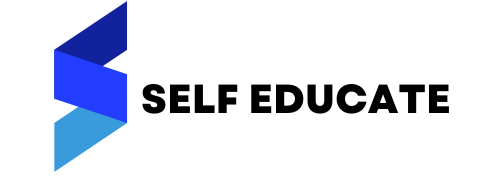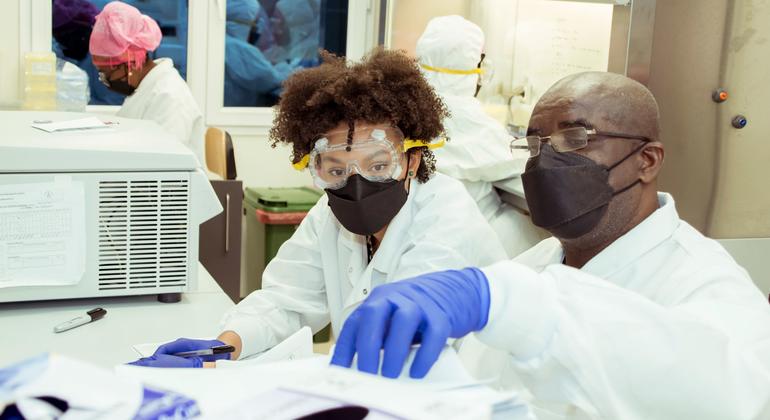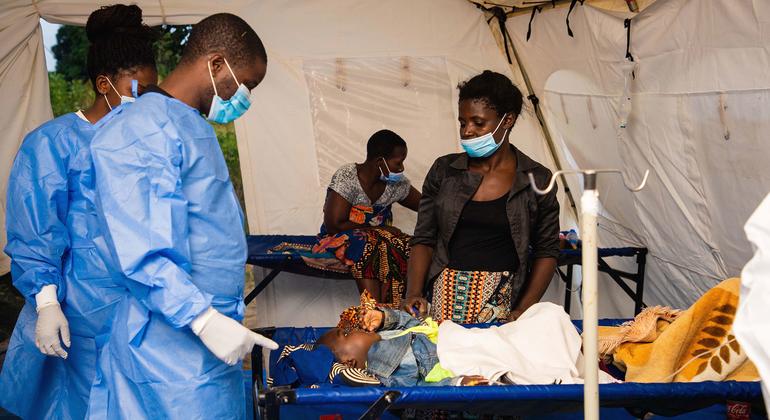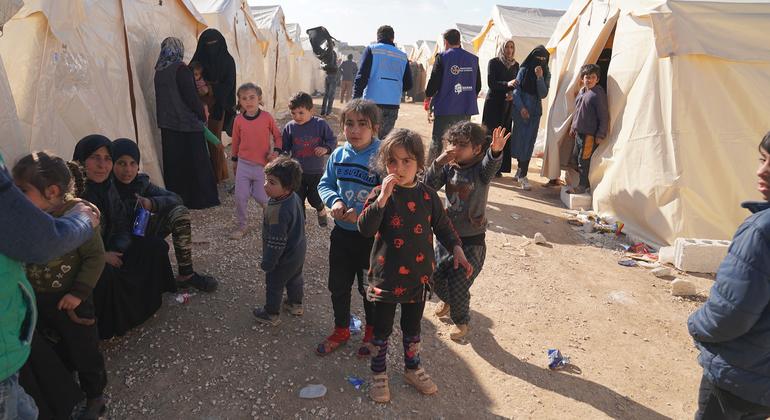Will There Be Enough Monkeypox Vaccine?
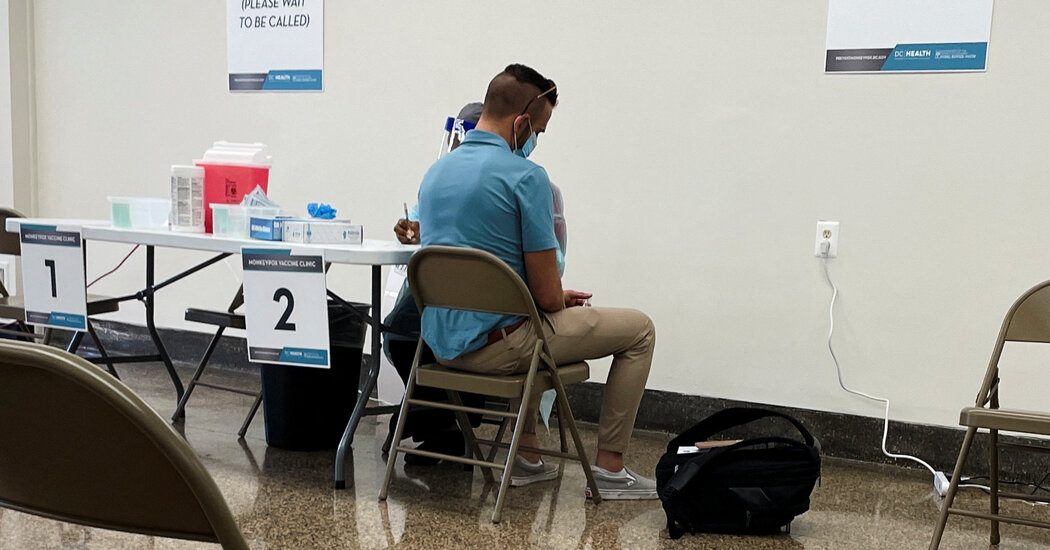
[ad_1]
As the United States begins a vaccination campaign against monkeypox, concerns are mounting among some experts that the demand may soon far exceed the available supply.
Jynneos, the only vaccine developed for monkeypox, is made by a small Danish company, Bavarian Nordic. The company is expected to send about two million doses to the United States by the end of the year, but can produce less than five million more for the rest of the world.
The manufacturing facility that could make more has been shut for a planned expansion since last August. The facility is not expected to reopen until late this summer at the earliest, and additional vaccine manufactured there may not become available for at least six months after that.
Because testing has been patchy, the scope of the monkeypox outbreak, and therefore the need for vaccines, is uncertain, said Angela Rasmussen, a research scientist at the Vaccine and Infectious Disease Organization at the University of Saskatchewan in Canada.
But the current supply “is certainly not enough to vaccinate everybody who’s going to be at risk,” she said.
Roughly 60 countries are grappling with monkeypox cases, and all except the United States will need to share available doses — enough for fewer than 2.5 million people — until early 2023.
Bavarian Nordic has “a very small inventory of finished products” already distributed, said Paul Chaplin, the chief executive. The company has been able to fulfill all of the orders it has so far received, he said.
But, already, several countries are vaccinating close contacts of patients and anyone else at high risk — an approach that may rapidly ratchet up the number of doses required worldwide.
“We still have a window of opportunity to contain the virus,” said Zain Rizvi, who studies access to medicines at the advocacy group Public Citizen. “But that means that everyone who needs access to the vaccine needs it now.”
If the number of cases continues to rise unchecked, he warned, monkeypox may become permanently entrenched in several countries, leading to outbreaks for years to come.
What to Know About the Monkeypox Virus
What is monkeypox? Monkeypox is a virus endemic in parts of Central and West Africa. It is similar to smallpox, but less severe. It was discovered in 1958, after outbreaks occurred in monkeys kept for research, according to the Centers for Disease Control and Prevention.
The global count has risen to about 5,500 cases, and at least another 5,000 are under investigation. Cases in Europe have tripled in the last two weeks, according to the World Health Organization. The United States has identified 400 monkeypox cases, but the real number is believed to be much higher — and the number of at-risk people orders of magnitude larger than that.
The outbreak has largely been concentrated among men who have sex with men. An estimated six million men who have sex with men live in the United States alone.
The U.S. stockpile holds about 56,000 doses that will be distributed immediately, and federal officials expect to receive another 300,000 doses in the next few weeks.
An additional 1.1 million doses have been manufactured for the United States, but the Food and Drug Administration must inspect them and sign off before they can be released — a process that typically takes three months or longer, according to Mr. Chaplin.
The agency is expediting its review, but a spokeswoman declined to say how long it might take.
In addition, the United States previously had purchased “bulk” vaccine that could be “finished” to produce up to 15 million doses, which would require five months, according to Mr. Chaplin.
The administration has ordered 2.5 million doses from that stock, the first 500,000 of which are expected to be delivered by the end of the year.
Bavarian Nordic is talking to other manufacturers that could produce more doses, but that, too, generally takes at least four to six months, Mr. Chaplin said.
The situation will potentially leave the United States with about two million doses by the end of the year, but may hamper the response in other countries, particularly African countries where the virus has been endemic for decades, experts noted.
The United States helped Bavarian Nordic develop Jynneos, a safer alternative to older smallpox vaccines, primarily to prevent smallpox in the event of a bioterrorist attack. Instead, Jynneos has become a crucial tool in the race to contain monkeypox.
There is an alternative: ACAM2000, a version of the vaccine used to eradicate smallpox decades ago, which is also likely to be effective against monkeypox. But that vaccine has harsh side effects, including heart problems, and can be fatal in people with certain conditions.
“I want to underscore the absurdity of relying on one single manufacturer to be the global supplier for a vaccine that is needed to curb outbreaks,” Mr. Rizvi said. “It’s so stupid that we’re back in this situation.”
Mr. Rizvi and others have called for government-owned manufacturing facilities that could be commandeered during outbreaks to churn out vaccines quickly. Plans for such a facility are under consideration, according to a senior administration official with knowledge of the discussions.
The limited supply of Jynneos in the United States over the next few weeks may mean that people in big cities will be able to get the shots, while those in small rural counties will need to make do with ACAM2000 — or nothing, said Elizabeth Finley, director of communications for the National Coalition of S.T.D. Directors.
“We would like to see everybody who needs the vaccine get the vaccine, regardless of what community they’re in,” she said.
The World Health Organization has asked for 100,000 doses of Jynneos. The Biden administration is considering the request and awaiting more details about where and how those doses would be used, according to a senior administration official with knowledge of the negotiations.
“The U.S. has the most power in the world, frankly, right now, to shape the course of the epidemic,” Mr. Rizvi said. “We need global cooperation to make sure the doses get to where they are needed the most.”
[ad_2]
